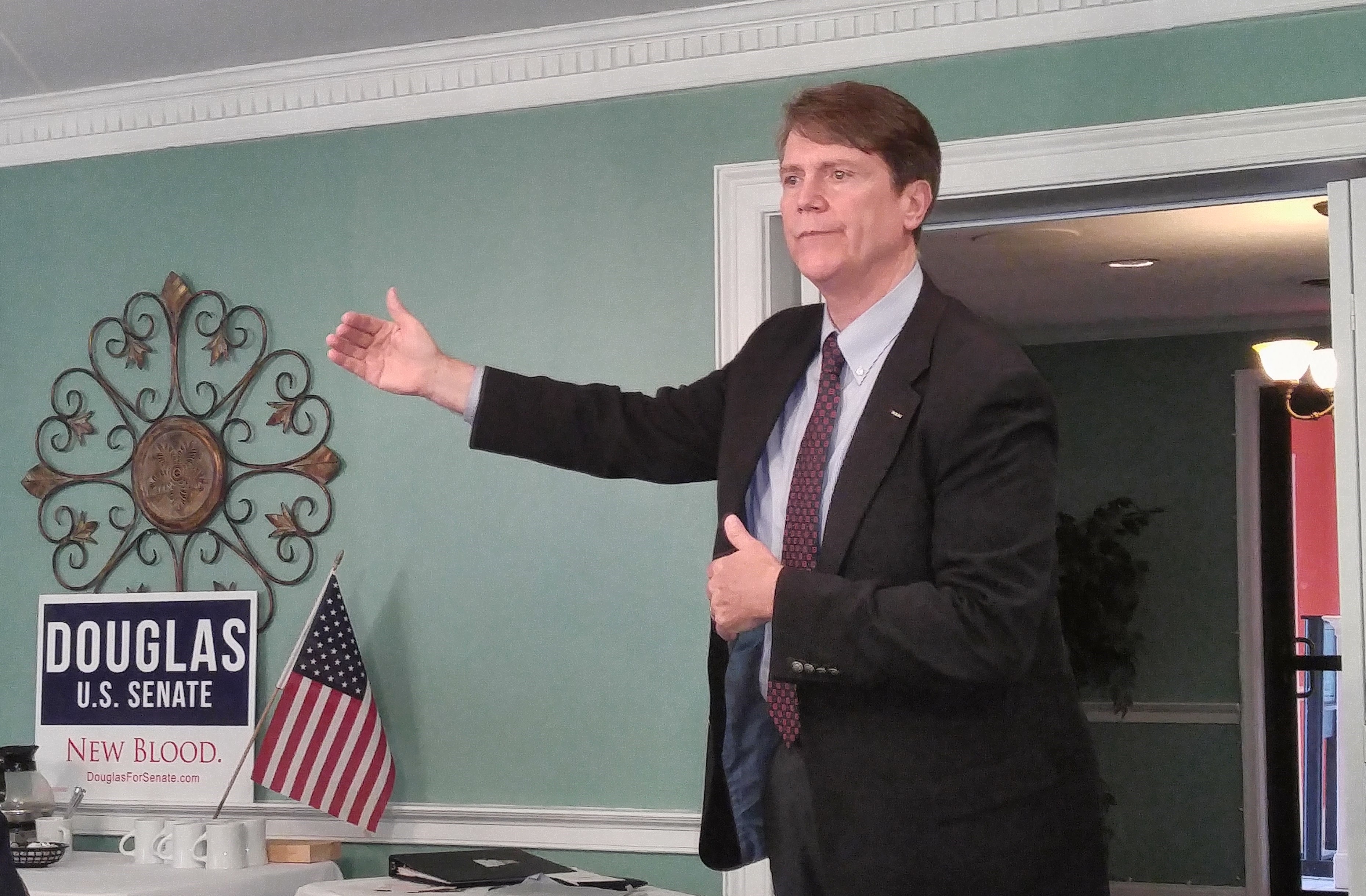Editor’s note: It’s been a long, long time since I’ve done one of these but since I trust this man implicitly on the subject I thought it was worth publication. Think of it as GO (guest opinion) Friday, the special Monday edition.
Guest opinion by Richard Douglas
Meet Kamala Harris: President of the United States Senate.
Republican members of Congress considering options in the face of an apparently-fraudulent Biden/Harris election victory ought to keep in mind another inevitable consequence of a Biden/Harris Administration: Kamala Harris as President of the United States Senate.
If former Vice President Joe Biden and Senator Kamala Harris are inaugurated on January 20th, don’t be surprised to see Vice President Harris standing at the Senate door on January 21st demanding the presiding officer’s gavel. She would have a perfect right to it under Art I, Section 3, clause 4 of the U.S. Constitution, which provides that “The Vice President of the United States shall be President of the Senate ….”
The Senate’s Standing Rules are in accord, and were written on the apparent assumption that the Vice President would actually preside in the Senate more often than not: “In the absence of the Vice President, the Senate shall choose a President pro tempore …. (Rule I (1.) Appointment of a Senator to the Chair). In fact, to this day a Vice President’s Office is set aside just off the Senate floor.
During the first George W. Bush term (2001-2005), for two years the U.S. Senate was split 50-50 between Republicans and Democrats. Vice President Dick Cheney was seen often in the Senate to break ties, the only circumstance where the Vice President may actually cast a Senate vote. But the limit on voting is no obstacle to taking the Senate presiding officer’s chair and gavel at will. Why haven’t Vice Presidents asserted the right to do this?
Several possible reasons occurred to me, based upon five years’ experience as a senior Senate lawyer, living and breathing Senate procedure.
First, it would not surprise me to learn that during the Gore and Biden vice presidencies, the Senate Democratic Caucus may not have wanted their former colleagues in the presiding officer’s chair. Neither Gore nor Biden ever served in the Senate Democratic leadership in spite of nearly a half century of Senate experience between them. Food for thought.
What else might account for the absence of our Vice Presidents from the Senate President’s chair? As I learned as treaty lawyer for the late Senator Jesse Helms of North Carolina (who knew Senate procedure very well), many Senators — perhaps most — don’t understand the Senate’s Standing Rules or their own constitutional prerogatives. Exhibits A and B for the latter proposition are the Paris and Iran deals, which thoroughly trampled Senate treaty practice.
Perhaps Senators also fail to grasp the potential impact and authority of a Presiding Officer armed with a good grasp of Senate Rules and parliamentary procedure. No surprise there.
Finally, a basic lack of imagination could account for the fact that no Vice President in my memory (starting with Lyndon Johnson) has ever taken hold of the Senate presiding officer’s gavel and seriously used it. But there are good lawyers in Biden circles who know the rules, and they won’t miss a trick. It seems to me that Kamala Harris would not fail to perceive the opportunity to dominate daily work in the Senate almost at will from the presiding officer’s chair.
What would it mean to have Kamala Harris as President of the Senate? Choreographed points of order from the Democratic Senate caucus? Strategic Senate recesses to allow Biden recess appointments? Erection of insuperable parliamentary roadblocks to Republican initiatives to confound the Biden-Harris White House? The list of possibilities is long. If I were Kamala Harris, I would be looking for a retired Senate parliamentarian now to teach me the finer points of Senate procedure.
Would Kamala Harris gain anything by taking the Senate gavel frequently when the Senate is in session? If she is inaugurated, it will be her right and privilege to do so. And why wouldn’t she? For someone with presidential ambitions, it is hard to imagine a more bully pulpit, outside the Oval Office, than the Senate President’s chair, whence every word and deed is beamed out to the world by C-SPAN and other media.
In general, contested points of order, parliamentary procedure, and the Senate Rules can be waived by unanimous consent or put to a vote. Consequently, a Kamala Harris Senate presidency might not matter so much if the GOP had a strong majority in the Senate and could prevent unanimous consent or GOP defections on every point of order or parliamentary dispute. Except that the GOP doesn’t have a strong Senate majority, and can’t keep its own members from defecting. What’s more, the fluid U.S. Senate run-off in Georgia makes the Senate vote count even harder to nail down at this point.
What is easier to predict, however, is that even if the Republicans hang on to a Senate majority, Congress could come to work on January 21st with Nancy Pelosi as Speaker of the House and Kamala Harris as President of the Senate. This is a genuine possibility which will quickly ripen into a reality if Congress fails to reverse what appears to have been an election victory procured by fraud.
Kamala Harris as President of the Senate. Does Congress care?
Richard Douglas is a former Senate staffer for Sen. Jesse Helms and ran twice (alas, unsuccessfully) for a U.S. Senate seat from Maryland.





